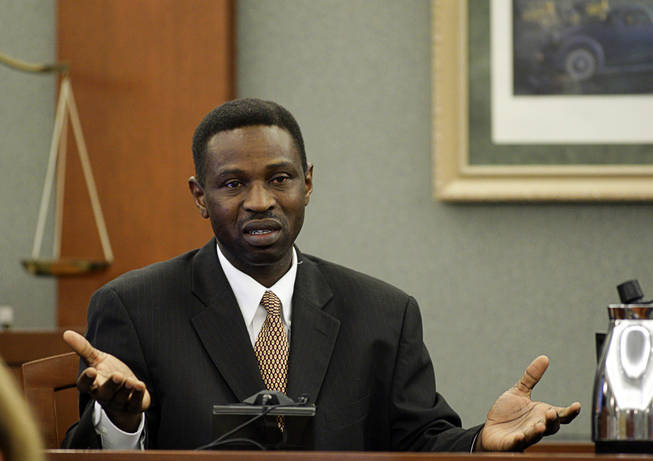The US Supreme Court rarely hears any case related to family law, parents rights, child abuse, or anything like that. It just agreed to hear a case related to CPS powers.
First some background. The 6th Amendment to the US Constitution says:
In all criminal prosecutions, the accused shall enjoy the right to a speedy and public trial, by an impartial jury of the State and district wherein the crime shall have been committed, which district shall have been previously ascertained by law, and to be informed of the nature and cause of the accusation; to be confronted with the witnesses against him; to have compulsory process for obtaining witnesses in his favor, and to have the Assistance of Counsel for his defence.
In particular, you cannot be convicted on hearsay. If someone claims that you robbed a bank, then the actual witness with first-hand knowledge has to testify at your trial, and answer whatever questions you have about what he saw. A police report is second-hand info, and is considered inadmissible hearsay.
Here is
the case:
The U.S. Supreme Court agreed Thursday to hear an appeal from Ohio in a case in which a Cleveland man's conviction for child abuse was overturned.
Prosecutors from Cuyahoga County appealed to the Supreme Court in May after the Ohio Supreme Court ruled against them in October 2013.
The case centers on whether a child's out-of-court statements to a teacher in response to the teacher's questions about potential child abuse qualify as statements subject to the Sixth Amendment's confrontation clause.
The case involved Darius Clark of Cleveland, who was convicted in 2010 of four counts of felonious assault, two counts of child endangering resulting in serious physical harm and two counts of domestic violence.
Prosecutors charged Clark in March 2010, saying he injured his girlfriend's 3-year-old boy and the boy's 22-month-old sister. Authorities were notified after teachers at the boy's day school saw his injuries and questioned him about who had hurt him.
At trial in Cuyahoga County Common Pleas Court, the young boy was found incompetent to testify, but the court permitted his statements to be admitted through testimony of the teachers.
Clark ultimately was sentenced to 28 years in prison.
The Ohio 8th District Court of Appeals overturned Clark's conviction, holding that the use of the boy's statements violated Clark's right to confront his accusers.
The Ohio Supreme Court, in a 4-3 ruling, agreed.
That seems right to me. If the only evidence is some teacher hearsay about the incoherent babbling of a 3yo child, then the man should go free.
In most real cases, there would be other evidence as well. Such as medical reports on the injuries, and testimony that the kid was in his care.
In recent years, there has been pressure to make exceptions to the 6A right. To make domestic violence convictions easier, 911 tapes have been admitted on the grounds that they are "nontestimonial", even tho they are hearsay. Apparently there are now at least 4 votes on the US Supreme Court to
create another exception:
The 4-3 decision by the state supreme court prompted a sharp dissent from Chief Justice Maureen O’Connor who wrote that “the very people who have the expertise and opportunity to recognize child abuse are now prohibited in Ohio from testifying about any out-of-court statements that a child makes about abuse or neglect when the child, for whatever reason, is unable to testify,” adding that children in Ohio “will go unprotected.”
Occasionally a witness gets murdered and a gangster goes free. No 6A exception for that. But now an exception for teachers to give hearsay because they are child abuse experts? That's crazy. This is what we get from women judges.
I had a CPS child abuse expert testify at my trial that I repeatedly ran my car over a sleeping dog, without injuring the dog. No, she never saw it. No one ever saw it because it is impossible. Dogs don't do that. But she claimed to have confirmed it by asking a child.
She writes:
Child abusers often evade prosecution ... Children in Ohio will go unprotected. ... I can only hope that four justices [of the US Supreme Court] vote to accept that invitation [to reverse the Ohio decision, and allow kindergarten teacher hearsay].
She now has those 4 votes to consider the appeal, and I am all in favor of locking up child abusers, but I really don't think that we need kindergarten teacher hearsay and an exception to the Bill Of Rights to do it.
The 6A does
not say:
the accused shall enjoy the right ... to be confronted with the witnesses against him, unless some recognized expert like a kindergarten teacher has hearsay to make it unnecessary.
I have no confidence in our US Supreme Court. We now have three liberal women on it, and the next appointment might be from Hillary Clinton.
Here is the current version of the exception:
Statements are nontestimonial when made in the course of police interrogation under circumstances objectively indicating that the primary purpose of the interrogation is to enable police assistance to meet an ongoing emergency. They are testimonial when the circumstances objectively indicate that there is no such ongoing emergency, and that the primary purpose of the interrogation is to establish or prove past events potentially relevant to later criminal prosecution.
This seems like an outrageous distinction to me, but it is even crazier to say that a kindergarten teacher interrogating a child is just like a policeman meeting an emergency.
The US Supreme Court
briefs for this case are being posted.







